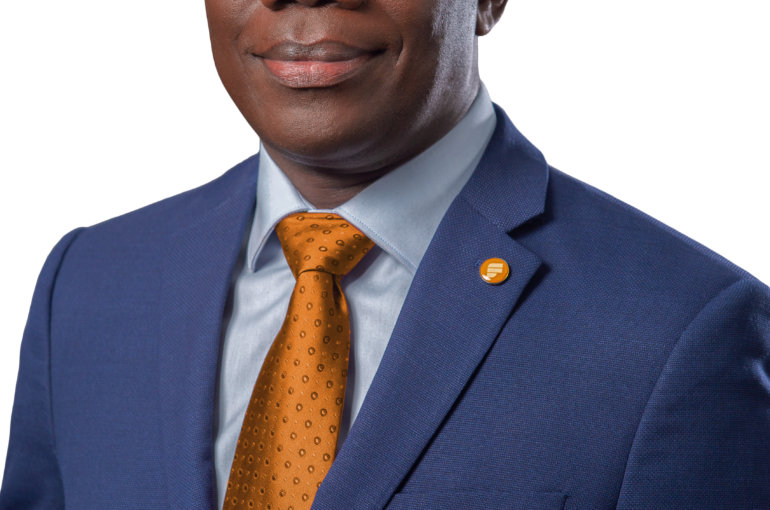Fidelity Bank prioritising environmental sustainability in core strategy – MD
Fidelity Bank prioritising environmental sustainability in core strategy – MD


Fidelity Bank is aggressively integrating environmental considerations into its core business strategy, Managing Director Julian Opuni has stated.
The bank has implemented a comprehensive Environmental and Social Risk Assessment (ESRA) process for all loans, ensuring climate risks are factored into lending decisions.
“We understand that our business will not exist in the future if we do not integrate mitigation and adaptation strategies into our bank’s processes,” Mr. Opuni told the B&FT. “Addressing climate change is central to our long-term strategy,” he added.
This move comes as Ghana, like many African nations, grapples with the increasing impacts of climate change. The World Bank estimates that climate change could push approximately 132 million people into poverty by 2030, with Sub-Saharan Africa being particularly vulnerable.
Fidelity Bank’s approach extends beyond risk assessment. The institution has launched a ‘Waste to Cash’ initiative, focusing on recycling paper and plastic waste. The programme aims to significantly reduce the bank’s waste output and potentially create new revenue streams. “By turning what was once discarded into value, we are not just reducing our environmental footprint, we’re demonstrating that sustainability and profitability can go hand in hand,” the Fidelity Bank MD explained.
The bank is also developing a stand-alone climate strategy to guide future actions more robustly. This strategy aligns closely with Ghana’s Nationally Determined Contributions (NDCs) policy targets, which aim to reduce greenhouse gas emissions by 45 percent below business-as-usual levels by 2030. “Our sustainability approach reinforces our commitment to supporting the nation’s climate goals while ensuring that our operations and offerings are resilient in the face of evolving environmental risks,” the bank chief stated.
In a move to foster innovation in sustainable agriculture, Fidelity Bank has launched the Fidelity GreenTech Innovation Challenge (GTIC) 2024. The initiative offers over GH¢1 million (in funding across three tiers: Ideation, Scale-Up, and Commercialisation. “The GTIC is about more than just funding; it’s about nurturing young, tech-savvy entrepreneurs who can revolutionise Ghana’s agricultural landscape. We are creating pathways for solutions that can truly transform communities and ensure a sustainable future for all Ghanaians,” he emphasised.
This focus on agriculture is particularly significant given the sector’s importance to Ghana’s economy. Agriculture contributes about 20 percent to Gross Domestic Product (GDP) and employs a third of the country’s workforce, according to the Ghana Statistical Service.
Fidelity Bank and B&FT Sustainability Summit
Fidelity Bank is also taking steps to engage the broader business community on sustainability issues. Consequently, the bank is co-organising an upcoming sustainability conference with the B&FT, themed ‘Ensuring Environmental and Economic Sustainability: Collaborating For A Greener Future.’
“We are bringing together key industry players, policymakers, and thought leaders to drive conversations around integrating sustainable practices into business strategies,” Mr. Opuni said. “The message is clear: sustainability is not just a trend—it’s a necessity. We can’t afford to stick to business as usual.”
While Fidelity Bank’s initiatives are promising, they also highlight the challenges facing the financial sector as it grapples with climate change. The Ghana Banking Survey 2022 by PwC found that while 80 percent of banks in Ghana consider environmental and social risks in their credit risk assessment, only 40 percent have developed products specifically to address climate change risks.
Mr. Opuni acknowledges the scale of the challenge but remains optimistic. “The future we want is within reach, but it requires us all to commit to doing business differently—responsibly, collaboratively, and sustainably,” he stated.
As Fidelity Bank continues to develop its climate strategy and sustainability initiatives, it sets a precedent for the banking sector. The success of these efforts could have far-reaching implications, not just for the bank’s bottom line, but for Ghana’s ability to build resilience against climate change while fostering sustainable economic growth.
With climate change increasingly recognized as a material risk to financial stability, Fidelity Bank’s proactive approach may well become a model for others in the region to follow. As Mr. Opuni put it, “The time to act is now. Let us come together to chart a new path that ensures both profitability and environmental stewardship.”



